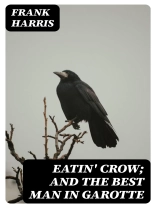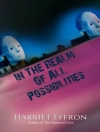In ‘Eatin’ Crow; and The Best Man in Garotte, ‘ Frank Harris masterfully weaves together two captivating narratives infused with his signature blend of ribald humor and incisive social criticism. The stories traverse the complexities of human relationships, moral dilemmas, and the stark realities of life, all delivered in a vivid, conversational style that reflects the author’s deep understanding of the zeitgeist of his era. From the gritty streets to the intimate corners of society, Harris captures the essence of American life in the early 20th century, revealing both its absurdities and its poignancies. Frank Harris, a journalist, rebel, and self-proclaimed provocateur, lived a life steeped in the very experiences he pen. Known for his unabashed exploration of topics often deemed taboo, Harris’s writings reflect the influences of his diverse upbringing and the literary movements of his time, including realism and modernism. His encounters with prominent literary and artistic figures further shaped his unique voice, making his works poignant reflections of societal norms and their discontents. ‘Eatin’ Crow; and The Best Man in Garotte’ is an essential read for enthusiasts of early 20th-century literature and anyone seeking a thought-provoking yet entertaining exploration of life’s complexities. Harris’s unapologetic style invites readers to confront the uncomfortable truths of existence, ensuring a lingering resonance long after the last page is turned.
Circa l’autore
Frank Harris, born James Thomas Harris on February 14, 1856, in Galway, Ireland, was a notable author, editor, journalist, and publisher, whose career spanned both sides of the Atlantic. Harris’s literary style is characterized by its daring and often controversial subject matter, a reflection of his larger-than-life persona and his commitment to free expression. Among his various works, ‘Eatin’ Crow; and The Best Man in Garotte’ stand as examples of his storytelling prowess, set against the colorful backdrop of the American West. These stories, ripe with vivid characterization and sharp social commentary, exemplify his narrative skill and his ability to critique societal norms while entertaining his readers. Harris was also known for his autobiographical work, ‘My Life and Loves’, which, due to its explicit content, was banned in several countries. His penchant for the provocative carried through his professional and personal life, often leading to a mixture of admiration and scandal. Harris’s contributions to literature are marked by his relentless pursuit of truth and human freedom, which continued until his death on August 26, 1931. His body of work remains a testament to his belief in the power of the written word to challenge, illuminate, and transform.












